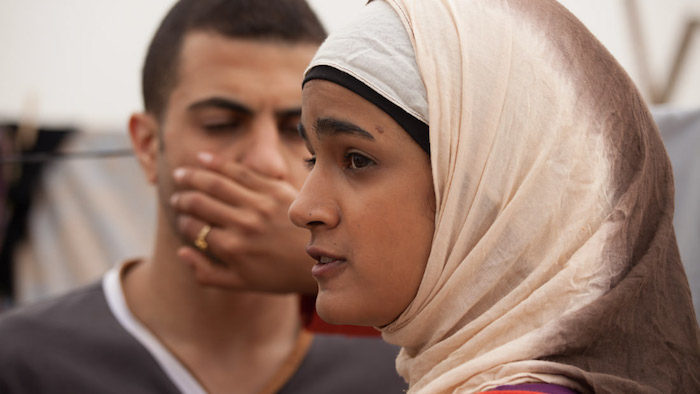Netflix UK film review: Sand Storm
Review Overview
Cast
8Script
8Intimacy
8David Farnor | On 03, Feb 2019
Director: Elite Zexer
Cast: Ruba Blal-Asfour, Lamis Ammar, Jalal Masrwa, Haitham Omari
Watch Sand Storm online in the UK: Netflix UK
Weddings are traditionally a cause for celebration and union – unless, perhaps, those traditions mean they’re decided by other people. Sand Storm, which won the World Cinema Grand Jury Prize at the 2016 Sundance Film Festival before being acquired by Netflix, features not one wedding, but two.
Writer-director Elite Zexer, making her feature debut, takes us inside a small Bedouin village to witness the preparations for each. The first is complicated enough, as we see Jalila (Ruba Blal-Asfour) hosting the nuptials for a young woman, who has just been wed to a man – more specifically, Jalila’s husband, Suliman (Haitham Omari). It’s a cruel, humiliating tradition that not only leaves his first wife having to tolerate his polygamy, but also be the one responsible for celebrating the arrival of his second into her life (men, we notice, aren’t present with the women at such celebrations).
We begin the drama, though, not with her but with her daughter, Layla (Lamis Ammar), who is having a driving lesson with her dad. It’s a sequence that suggests a changing of the tide, a forward-thinking family that is paving the way for a different world, where Layla can enjoy a future with more decisions made by herself. Sand Storm’s tragedy lies in the gradual dispelling of that hope, as we (and Layla, and Jalila) become deeper entrenched in their village’s routines and rules.
Layla, we quickly learn, is a thoroughly modern young woman, with a mobile phone and even a course she attends at university. There, she has met a nice young boy, Anwar (Jalal Masrwa). But when her mother discovers that she is seeing a man outside of their tribe, not to mention one who has not been appointed by Suliman, she orders Layla to get rid of him – nothing good, she warns, will come of Anwar trying to respect conventions and ask for Suliman’s permission to date or marry his daughter. She’s not wrong, and what unfolds is a complex dissection of the many layers of conflict that are created by such a patriarchal system.
Not unlike the recent Apostasy, or 2012’s Fill the Void, Elite Zexer’s film finds huge power in examining the minutiae of relationships between women in a family confined by external controls (even the walls of their house are unloved and starting to crumble). Lamis Ammar’s innocent performance brings hope of trying to change the world, and it’s contrasted superbly, and sadly, by Ruba Blal-Asfour, whose Jalila is outwardly compliant but inwardly fuming, that contained anger and resentment expressed in glowering looks, the way she prowls through the home, and, in the film’s best scenes, the way she verbally rebukes her husband for his treatment of her – and pleas with him not to give his daughter away to a random suitor in the village to suit his own interests or his own need to conform with the rules.
As Layla’s truck takes her not on a road to freedom but through a tunnel towards what’s expected of her, Sand Storm’s quietly tempestuous impact emerges not only in Ammar and Blal-Asfour’s performances, but in the way that Omari’s patriarch is also given the chance to express his own inner torment. “Tell me what you think,” Layla demands of him, after a period of no communication. “If you cared what I think, we wouldn’t be in this situation,” he replies, no more a winner than she is. Shirking the temptation to look wider at the village as a whole, this deliberately closed chamber piece is a moving, sensitively portrayed drama about how even the happiest rites of passage can feel claustrophobic.
Sand Storm is available on Netflix UK, as part of an £9.99 monthly subscription.




















